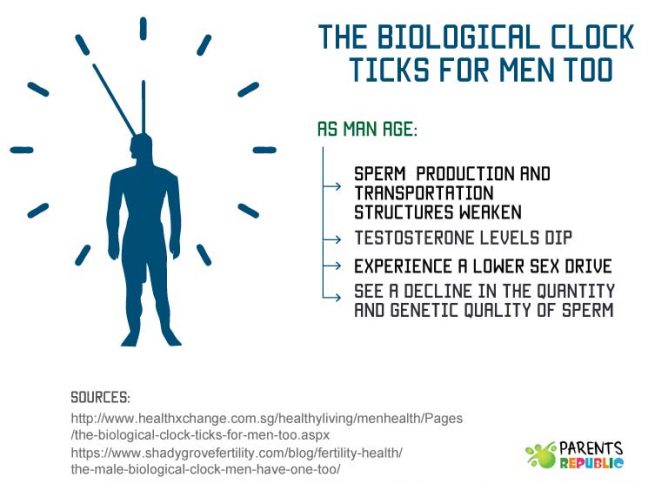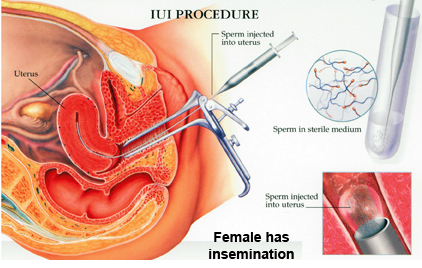![]() The information provided by our expert should not constitute a diagnosis of your condition. Always consult a medical practitioner or healthcare provider for a formal diagnosis. By making use of this content, you agree that ConceiveEasy and the expert assume no liability.
The information provided by our expert should not constitute a diagnosis of your condition. Always consult a medical practitioner or healthcare provider for a formal diagnosis. By making use of this content, you agree that ConceiveEasy and the expert assume no liability.
Infertility is a painful ordeal for any couple to go through. Especially if they have been doing the correct things ever since they started to attempt to conceive. They would have gone for their preconception checkup and would have taken the suggestions from their doctors for improving their health such as making the right shifts in order to get to their optimal weight, managing their stress levels, making sure that they get the best quality sleep; and getting rid of bad habits like smoking, drinking, doing drugs, and putting restrictions on junk food and caffeine consumption. So many assumptions are made about infertility and boatloads of infertility myths abound. Claim Your 20 Free Pregnancy Tests – Click Here
And, women are told to chart their cycles in various ways such as taking their body basal temperatures for 3 months each morning so they have an idea of when they are ovulating. They will be told to check for fertile cervical mucus which has a consistency of egg whites and it is abundant. They have been likely told as well to use ovulation prediction kits to see when they are ready to ovulate, once they already have a general idea.
And, men are told that excess heat in the groin area can kill off healthy sperm. That said, they have been instructed to no longer take piping hot long showers, and then stick to taking lukewarm shorter showers. They take out their briefs, their tight-fitting jeans, and their other tight-fitting pants and put them in storage. While they get their boxers and their loose-fitting cotton pants and only wear them during the baby-making phase.

Additionally, they take the right vitamins, supplements, and they stick to eating fertility-friendly foods when they are attempting to achieve a pregnancy. However, as long as the couple that is trying to conceive are young (meaning that they are 35 or under), and the woman has regular cycles and knows when she ovulates, doctors will tell them to give themselves a year to successfully conceive. That means doctors will not help them out if they have not gotten pregnant or had miscarried before a year. If after the year is up without any success, then they will need to be referred to a fertility specialist.
The only times any doctor will agree to help couples that have been trying well under a year are those when the woman is 35 or over, or/and has irregular periods. Additionally, if there is a known fertility issue, then doctors will agree to refer a couple to a specialist a lot sooner than a year of trying.
And, once these couples have been referred to fertility specialists, that is when their infertility journey truly begins. That is regardless of whether the woman needs Clomid to regulate her cycles to conceive naturally, or if they need a slightly more aggressive treatment such as IUI (intrauterine insemination) or if they need to go even more aggressive (and costly) than that and need IVF. 
And once any infertile couple is going through that difficult journey of facing infertility, they are going to be going through an emotionally, financially, spiritually, and a mentally taxing time. And, unfortunately, as much as infertility is a common thing and spoken about often, it is still considered somewhat taboo. And, this is why many suffering couples keep quiet about their struggles.
That said, because of the fact that infertile couples keep their struggles and battles private for the most part, couples who have not to deal with infertility will not understand the struggle. The same obviously applies to anyone who does not have kids, nor plans to have kids.
This is why there are so many assumptions made about infertility and as a result, there are infertility myths floating around about any couple that is facing infertility. Let’s take a look at those infertility myths now and find out what they are:

People need to simply relax and it will happen
Even though it is true that too much stress that is not managed properly will have a negative impact on fertility- a large portion of couples that are facing infertility will not conceive if they were to learn to relax. There are many reasons why couples cannot conceive that go beyond being too stressed out.
And, these couples will not get pregnant after taking a week off from work to relax, or that go on vacation. These couples will not conceive if they learn to meditate or start taking yoga classes. For couples that are perfectly fertile, it is true that they cannot allow themselves to become too stressed out. However, for most couples facing infertility, this is just a myth. And, this is not what to say to anyone that is struggling with infertility.

Infertility is always the woman’s fault
This is untrue. Many couples that are facing infertility are struggling because the man’s sperm count, quality, motility, and mobility are poor. And, the woman’s reproductive system is perfectly fine. In fact, when couples are struggling with infertility because the man has too few swimmers that are not of the best quality and that are slow, then more aggressive fertility tactics must be implemented. In the best case scenario, these couples would have achieved a pregnancy through IUI fairly quickly due to timing the woman’s ovulation time perfectly.
Additionally, IUI is a lot less costly than IVF, and is not nearly as invasive. And, in order for that to be an option, men have to have enough sperm to work with because plenty dies off in the wash. However, in cases where the sperm count is so low to the point that the man is almost considered to be sterile, IUI will not help. They will need to jump to the invasive and expensive IVF procedure that will even cost more since individual sperm will have to be injected directly into the egg.

The couple is not trying hard enough or is getting their timing wrong
This myth is also another that needs to be busted. As long as the woman knows exactly when she is ovulating and knows to start having intercourse when ovulation is near, odds are as long as there are no issues, a pregnancy will be achieved within a year. Couples that are facing infertility are quite aware of what needs to be done and are aware of the best timing for conception to happen. And, they have tried very hard to conceive, so telling them they are not trying very hard enough is damaging since they are already going through a difficult time.


If a couple already has a child or children, then they won’t ever have to worry about infertility
This is extremely untrue, and that is why you have heard the term secondary infertility. That is because even though you have had a successful pregnancy in the past or even several of them – infertility can always creep up whenever you are trying to a subsequent pregnancy. And, it can happen for many reasons.
Perhaps the man had a low sperm count and still managed to achieve a conception by perfect timing and luck, and when that couple has been trying to conceive another baby for a year, then the discovery of the low count is made. Many times when secondary infertility is involved, it is a case of unexplained infertility which is painful because that is when even the doctors are baffled. Usually, IVF is successful in cases when secondary infertility is involved.

The man does not need to worry about his fertility as he ages, that is just a woman’s worry
Even though it is true that men will produce healthy sperm for a long time, they will get to an age where they won’t be producing a lot of healthy sperm that is mobile due to just aging. It has been said that after a man is 40, his fertility begins to decline.


Your overall health does not affect fertility
This myth is completely wrong. Your overall health has a huge impact on fertility. For instance, if you are diabetic, frequent imbalances in your blood sugar and insulin levels will have a negative impact on a man and a woman’s fertility. Anyone who is obese or extremely underweight will also have a poor-functioning reproductive system with hormonal abnormalities. This is why it is always recommended that couples who are looking to try to conceive are told to go see their doctor to have a preconception checkup. If a health problem is discovered, then the thing to do is to manage the condition properly before the couple can get the green light to go on with their baby-making journey.

Every infertility journey is the same
This is extremely false. Some infertile couples are very lucky and end up not needing to spend a lot of money on treatments as well as time if all they needed was some fertility drugs and/or a few IUI procedures. In those cases, they would be likely to be conceiving within a year of starting their treatments with the specialist. These cases involve mild infertility.
And yet, you have couples that have been trying to get pregnant for years or even over a decade with various failed IVF attempts while they are struggling to pay back the loan they had taken out to do the treatments. You cannot compare a severe struggle with infertility to a mild struggle. However, one thing that is true is that everyone that experiences infertility, regardless of how mild or severe – they will be stressed, sad, feeling hopeless, exhausted. The only difference is that those who have mild infertility will have the issues resolved quicker and won’t be feeling those feelings for as long as their counterparts who are struggling a lot more.

All infertile couples have the option of adopting if they are not successful
This is also very untrue. There are many couples who do decide to adopt after struggling with their own fertility for a long time. However, there are many couples who don’t think they could love a child that is not biologically theirs and they should not be expected to adopt if that is not what they want. In fact, it is better that they don’t adopt a child and end up resenting the child later on. Some couples who have struggled with infertility have resigned to be child-free and to become pet parents.


Infertile couples that don’t become successful with having their own kids will never find happiness again
There are probably many couples who will be grieving for life for not being able to have their own kids. In fact, this is likely true for the majority of unsuccessful couples. However, just because they are grieving does not mean they will never find happiness again. As mentioned before, some may choose to adopt, and some may choose to become only pet parents. Some may even decide to become foster parents. And, some couples may do neither and accept the fact that they will be childfree for good. And, these couples who are close with their siblings that have kids will end up becoming their kids’ favorite aunts and uncles.
Bottom Line on Infertility Myths
Additionally, even though these couples are going to be grieving for not having the children that they wanted to have since day 1, they will eventually enjoy the fact that they will be able to do things that parents cannot do so easily. That is through traveling, sleeping in on the weekends, and going out in the evenings without having to come back at a certain time because of having to be back before the babysitter’s shift ends. Some may end up taking additional hobbies or may take new courses.
The point is that even though infertile couples who have not been successful with having kids of their own eventually will find peace and happiness and make the best of their lives. That does not mean they will ever stop grieving. Because what other option is there?
If you have believed any of these myths about infertility, then you now have an understanding of why these are infertility myths instead of facts. This is why it is never appropriate to ask a childless couple who has been married for a while when they plan to have kids. You also do not ask couples who do have one or two kids when they plan to bring a new sibling into the family. Because these couples may be struggling with infertility and are not going to be open to share their struggles.









Comments